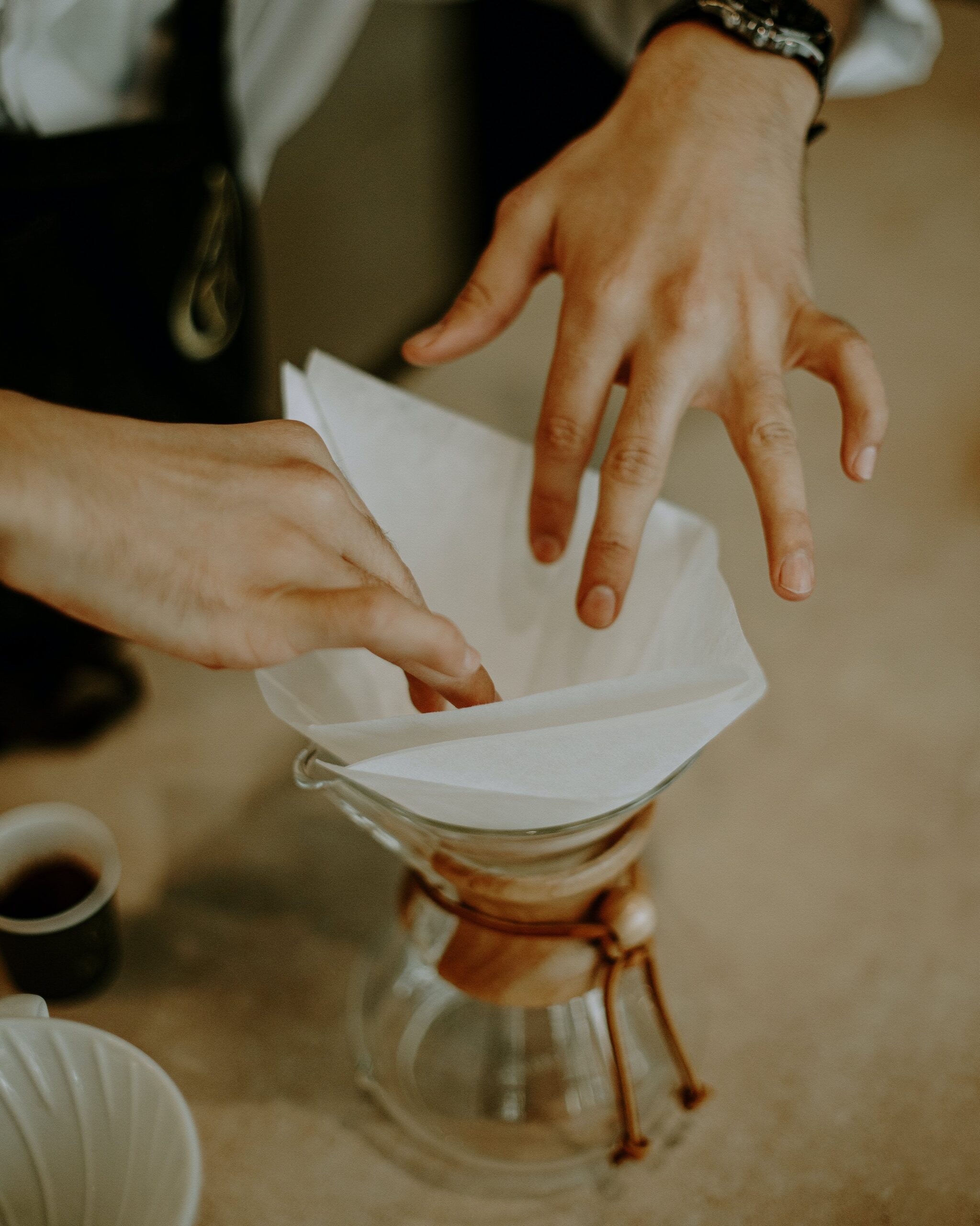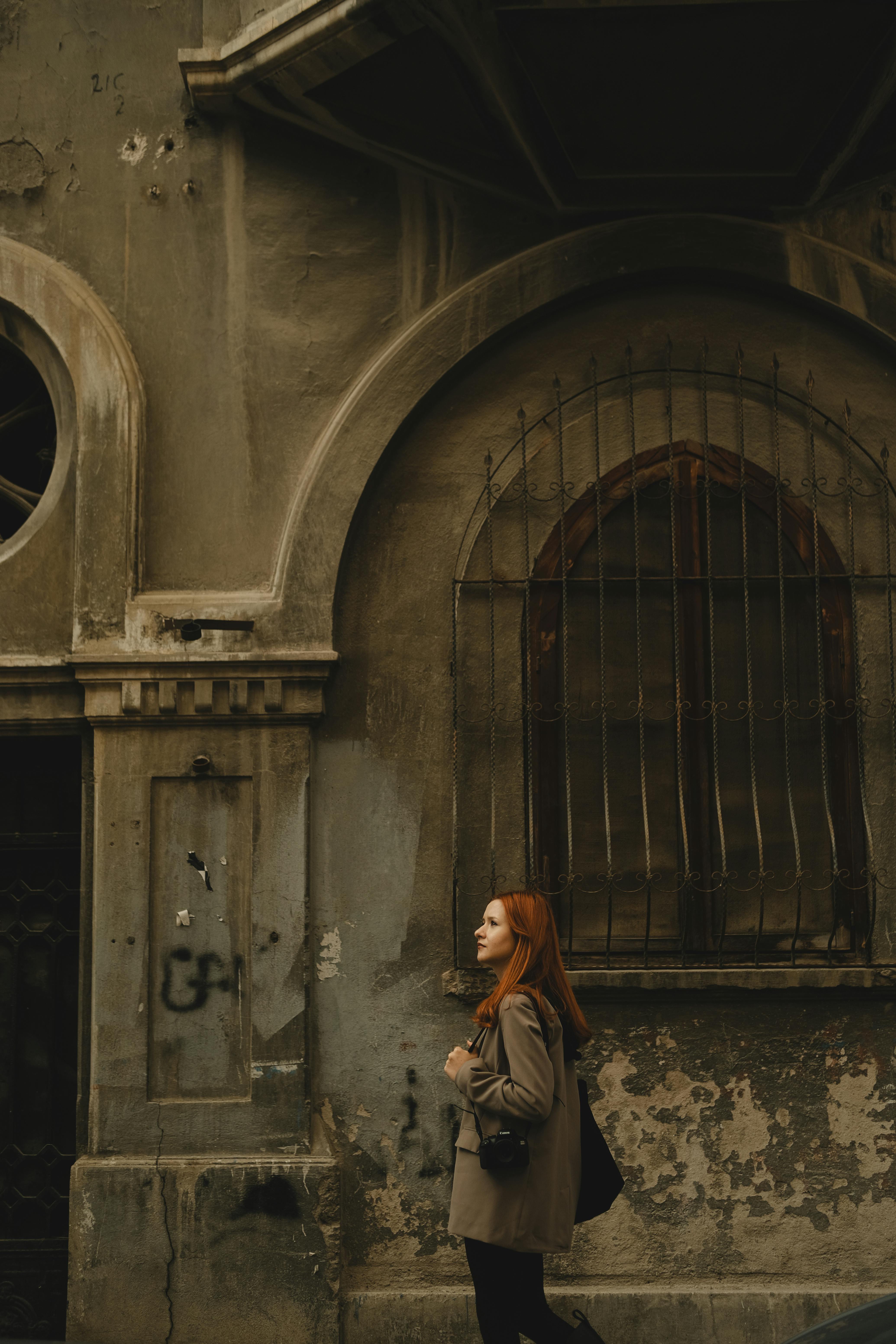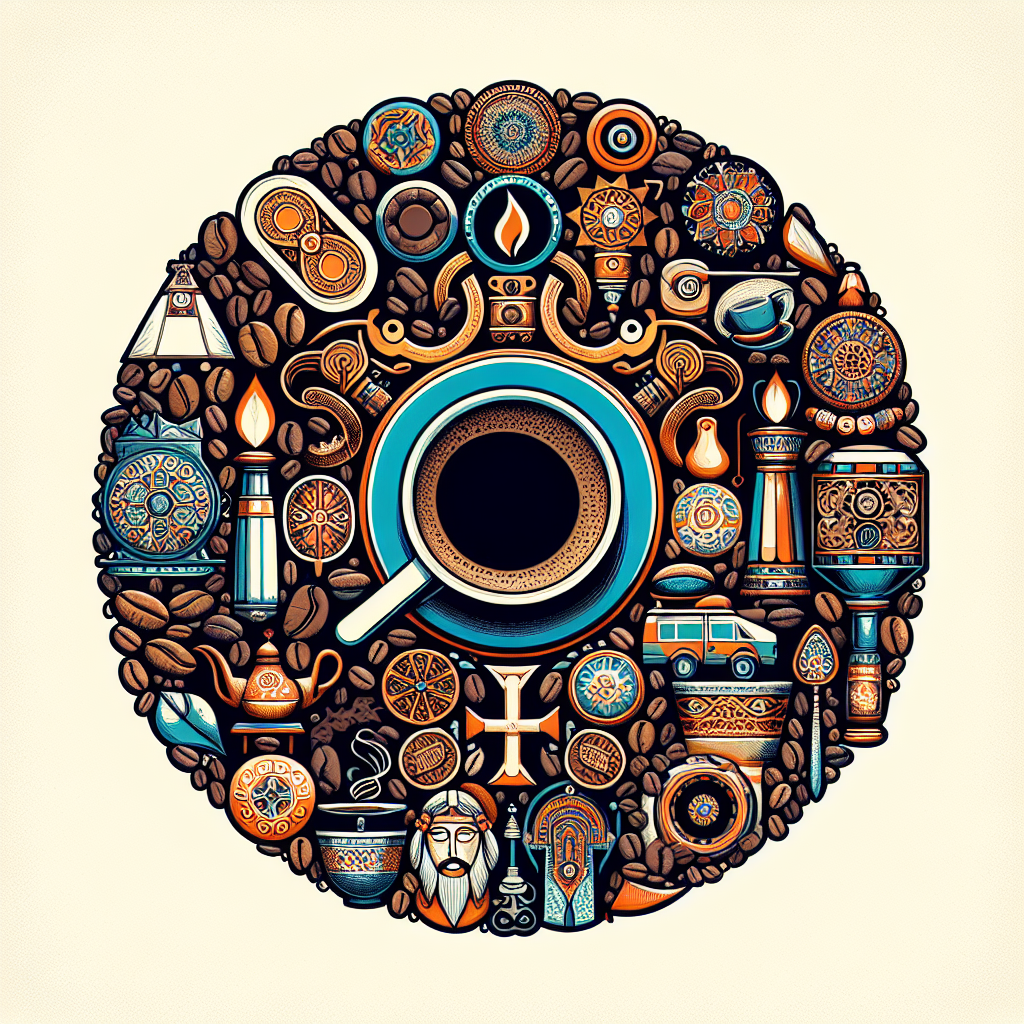Coffee has long been cherished for its ability to awaken our senses and provide a much-needed boost of energy. But did you know that this beloved beverage also plays a significant role in celebrations and rituals around the world? From morning rituals that set the tone for the day to elaborate ceremonies that mark special occasions, coffee has become an integral part of cultural traditions and customs. Join us as we explore the fascinating connection between coffee and these meaningful moments, delving into the rich history and diverse uses of this cherished drink. So grab a cup of your favorite brew, and let’s embark on a captivating journey into the world of coffee in celebrations and rituals.

The Historical Significance of Coffee in Celebrations
The Origins of Coffee in Celebration
Coffee has a long and rich history, and its connection to celebrations dates back centuries. The origins of coffee can be traced back to Ethiopia, where it was first discovered in the 9th century. Legend has it that a herder named Kaldi noticed his goats becoming energetic after eating the berries of a certain tree. Curious, he decided to try the berries himself and experienced a burst of energy. This discovery soon spread, and coffee became a popular beverage in many parts of the world.
Coffee and Religious Celebrations
Coffee has played a significant role in religious celebrations throughout history. In the Islamic faith, coffee has been an integral part of religious ceremonies and rituals. It is often served to guests as a symbol of hospitality and is considered a means of enhancing spiritual experiences. In some Christian traditions, coffee is served during religious gatherings and services, bringing people together and fostering a sense of community.
The Spread of Coffee in Celebrations
As coffee gained popularity, it made its way into various celebrations and cultural practices around the world. From weddings to funerals, coffee became a staple at significant life events. Its invigorating properties and rich flavor made it a natural choice for celebratory occasions. Over time, coffee became deeply ingrained in the cultural fabric of many societies, with unique coffee traditions emerging in different cultures.
The Cultural Significance of Coffee in Celebrations
Coffee as a Symbol of Hospitality
One of the key cultural significance of coffee in celebrations is its role as a symbol of hospitality. Serving coffee to guests has long been seen as a gesture of kindness and welcome. In many cultures, it is customary to offer a cup of coffee to visitors as a way of showing respect and creating a warm and inviting atmosphere. Coffee serves as a bridge between people, breaking down barriers and creating a sense of connection.
Coffee as a Social Cohesion Tool
Coffee has a remarkable ability to bring people together and foster social cohesion. In many cultures, coffee is served in large pots and shared among friends and family members. The act of coming together to enjoy a cup of coffee encourages conversation, deepens relationships, and strengthens bonds. Coffee acts as a catalyst for connection, promoting a sense of unity and belonging.
Coffee as a Sign of Respect
In certain cultures, offering coffee to others is a sign of respect and honor. It signifies the host’s appreciation for the guest and their desire to make them feel valued. This act of offering coffee demonstrates humility and generosity, emphasizing the importance of human connection and mutual respect. It is a way of acknowledging and honoring the presence of others in our lives.

Coffee Traditions in Different Cultures
Coffee Ceremonies in Ethiopia
Ethiopia is renowned for its unique coffee ceremonies, which are considered a significant cultural tradition. The ceremony involves the roasting of coffee beans over an open fire, followed by grinding and brewing the coffee. The brewed coffee is then served in small cups and passed around to participants. This elaborate ceremony is a communal experience, bringing people together to enjoy the rich aromas and flavors of Ethiopian coffee.
Coffee in Turkish Culture
Coffee holds a special place in Turkish culture and is deeply rooted in their traditions. Turkish coffee is known for its strong flavor and rich texture. It is traditionally prepared in a special pot called a cezve and served in small cups. Turkish people often gather in coffeehouses to socialize and enjoy a cup of coffee. Fortune-telling based on the leftover coffee grounds is also a popular practice in Turkish culture.
The Coffeehouses of Italy
In Italy, coffeehouses, known as “cafés,” have long been a hub of social activity and intellectual discourse. Italians take immense pride in their coffee culture, with espresso being the drink of choice. Italians have perfected the art of espresso-making, and the café serves as a meeting place for friends, colleagues, and artists. Coffeehouses in Italy are renowned for their cozy atmosphere, where people can relax and savor their coffee while engaging in conversation.
Coffee in Western Wedding Celebrations
Coffee has found its way into Western wedding celebrations, adding a unique touch to the festivities. Many couples choose to incorporate coffee bars or specialty coffee stations at their receptions, allowing guests to enjoy a customized coffee experience. From espresso shots to gourmet coffee blends, these coffee stations offer a break from traditional wedding beverages and provide guests with a caffeine boost to keep the celebrations going.
Coffee in Traditional Ceremonies and Rituals
Coffee in Marriage Ceremonies
Coffee holds significance in marriage ceremonies in various cultures. In some Arab cultures, the prospective groom visits the bride’s family, bearing a tray of coffee as a symbolic gesture. The acceptance of the coffee represents the acceptance of the marriage proposal. In other traditions, the bride and groom share a cup of coffee during the wedding ceremony as a symbol of unity and the beginning of their journey together.
Coffee in Birth and Naming Ceremonies
Coffee is also present in birth and naming ceremonies in certain cultures. In Ethiopia, for example, new mothers are served a special coffee called “Bunna” to celebrate the birth of a child. This coffee is often shared with family and friends, marking the joyous occasion. Similarly, in some Middle Eastern cultures, a naming ceremony called a “Sip-Sip” is held for newborns, where coffee is offered to guests as a way of celebrating the new addition to the family.
Coffee in Funeral and Mourning Rituals
Even in times of sadness and loss, coffee has a place in mourning rituals in some cultures. It is often served to mourners during funeral gatherings as a way of providing comfort and support. Coffee serves as a tangible symbol of community and solidarity, reminding mourners that they are not alone in their grief. The act of coming together over a cup of coffee helps alleviate some of the pain and fosters a sense of togetherness.

Coffee as a Catalyst for Community Bonding
Coffee as a Gathering Ritual
Coffee has long been used as a catalyst for community bonding. In many cultures, gathering around a pot of coffee is a cherished ritual. Friends, family, and neighbors come together to enjoy a cup of coffee, share stories, and connect on a deeper level. The act of preparing and serving coffee becomes a shared experience, strengthening the bond between individuals and fostering a sense of belonging.
Coffeehouses as Social Hubs
Coffeehouses have historically served as social hubs in many communities. They are places where people gather to enjoy a cup of coffee, engage in lively conversations, and form lasting friendships. Coffeehouses provide a space for individuals from various backgrounds to come together, breaking down barriers and creating a sense of unity. These establishments play a vital role in fostering community and providing a welcoming environment for all.
Coffee Clubs and Societies
Coffee clubs and societies have emerged as a way for coffee enthusiasts to connect and share their love for coffee. These groups often organize events such as coffee tastings, workshops, and discussions, bringing like-minded individuals together. Coffee clubs allow members to deepen their knowledge of coffee, explore different brewing methods, and appreciate the nuances of coffee flavors. These communities foster a sense of camaraderie and provide a platform for coffee lovers to connect and learn from one another.
The Symbolism of Coffee in Celebrations
Coffee as a Stimulant and Energizer
Coffee’s status as a stimulant and energizer adds to its symbolism in celebrations. It is often associated with waking up and starting the day with renewed energy. In celebrations, coffee represents the idea of invigoration, keeping the festivities going and ensuring that everyone remains engaged and enthusiastic. Its ability to provide a burst of alertness and vitality makes it an ideal symbol of progress and celebration.
Coffee as a Symbol of Joy and Celebration
Coffee’s rich aroma, bold flavors, and comforting warmth make it a natural symbol of joy and celebration. In many cultures, serving coffee during celebrations is a way of elevating the mood and creating a festive atmosphere. The act of sharing a cup of coffee with loved ones signifies a moment of joy and happiness, reminding everyone to savor the present and cherish special moments together.
Coffee as a Marker of Special Occasions
Coffee’s presence in celebrations serves as a marker of special occasions. Whether it’s a birthday, anniversary, or holiday gathering, serving coffee indicates that the event is significant and worthy of commemoration. Coffee is often served alongside traditional dishes and desserts, adding to the overall experience and signaling that something out of the ordinary is taking place. Its inclusion in celebrations enhances the sense of occasion and adds a touch of elegance.
Modern Coffee-Based Celebrations
National and International Coffee Day
The rise in coffee’s popularity has led to the creation of dedicated days to celebrate coffee on a national and international level. National Coffee Day is observed in many countries on different dates throughout the year. It is a day to appreciate the art of coffee-making, raise awareness about fair trade practices, and support local coffee businesses. International Coffee Day, held on October 1st, is a global celebration of coffee, highlighting its cultural, economic, and social significance.
Coffee Festivals and Exhibitions
Coffee festivals and exhibitions have become a way for coffee enthusiasts to come together and celebrate their shared passion. These events showcase the diversity of coffee cultures from around the world, featuring coffee tastings, demonstrations, competitions, and educational workshops. Coffee lovers can explore new flavors, learn about sustainable coffee practices, and connect with industry professionals. Coffee festivals are a vibrant celebration of the beloved beverage and an opportunity to deepen one’s appreciation for coffee.
Coffee Tastings and Competitions
Coffee tastings and competitions have gained popularity as a way to showcase the nuances of different coffee flavors and brewing methods. These events bring together coffee connoisseurs and experts who evaluate and rank various coffee samples based on criteria such as taste, aroma, and body. Coffee tastings provide a unique opportunity to explore the complexities of different coffee profiles and deepen one’s understanding of the world of coffee. Competitions also give coffee professionals a platform to showcase their skills and receive recognition for their expertise.
The Role of Coffee in Religious Rituals
Coffee in Christian Rituals
In Christian rituals, coffee is often enjoyed as a part of social gatherings, such as after Mass or during church events. Coffee serves as a means of fostering fellowship and creating an atmosphere of warmth and community. It provides an opportunity for church members to connect, share their experiences, and support one another. Coffee symbolizes the spirit of togetherness and plays a role in strengthening the bonds within the Christian community.
Coffee in Sufi Rituals
In Sufi rituals, coffee holds a spiritual significance. Sufism, a mystical branch of Islam, emphasizes the importance of spiritual awakening and closeness to the divine. Coffee is believed to aid in this awakening, helping Sufis reach a heightened state of consciousness during their rituals. It is often consumed before or during Sufi gatherings, acting as a stimulant to enhance spiritual experiences and deepen the connection with the divine.
Coffee in Buddhist Rituals
In certain Buddhist traditions, coffee is offered as a part of rituals and ceremonies. Coffee is seen as a way to focus the mind and cultivate mindfulness. It is used as a tool to help individuals stay alert and present during meditation practices. By facilitating mental clarity and concentration, coffee supports the journey towards enlightenment and spiritual growth in Buddhist rituals.
The Connection Between Coffee and Traditional Foods
Coffee Pairings with Traditional Dishes
Coffee has the remarkable ability to complement and enhance the flavors of traditional dishes. In many cultures, specific types of coffee are traditionally paired with certain foods. For example, in Italy, espresso is enjoyed with biscotti or pastries, while in Turkey, strong Turkish coffee is often accompanied by sweet treats such as baklava. These coffee and food pairings create a harmonious balance of flavors, elevating the dining experience.
Traditional Desserts with Coffee
Coffee is often a key ingredient in traditional desserts around the world. Tiramisu, a rich and creamy Italian dessert, is made with layers of soaked ladyfingers and mascarpone cheese, infused with coffee. In the Middle East, cardamom-spiced Arabic coffee is commonly enjoyed with sweet pastries like baklava and kunafa. These desserts carry the distinct flavors and aromas of coffee, adding depth and complexity to the culinary traditions of various cultures.
The Future of Coffee in Celebrations and Rituals
Innovations in Coffee-serving Technologies
As technology continues to advance, we can expect to see innovations in coffee-serving technologies that will revolutionize the way coffee is enjoyed during celebrations and rituals. From automated coffee dispensers to smart coffee brewing systems, these advancements will make it easier and more convenient to serve coffee to a large number of people. These innovations will also enhance the overall coffee experience, allowing for precise customization and consistency.
Coffee-inspired Art and Decorations
Coffee’s cultural significance has inspired artists and designers to incorporate it into their creations. We can anticipate seeing more coffee-inspired art and decorations in celebrations and rituals. From coffee-themed paintings and sculptures to coffee bean-inspired jewelry, these creative expressions will add a unique and visually captivating element to various events. Coffee-inspired decorations will not only enhance the aesthetic appeal but also serve as a conversation starter, bringing people together to appreciate the beauty and symbolism of coffee.
The Evolving Role of Coffee in Rituals
As society evolves, the role of coffee in rituals will also continue to transform. While some traditions and practices remain constant, others will shift to reflect changing cultural norms. The inclusivity of coffee as a beverage means that it will continue to adapt to the diverse needs and preferences of individuals. Coffee will remain a symbol of celebration, connection, and hospitality, adapting to new rituals and emerging traditions, ensuring that it maintains its significance in the ever-changing landscape of celebrations.
In conclusion, coffee’s historical and cultural significance in celebrations and rituals is deeply intertwined with its symbolisms of hospitality, social cohesion, and respect. From its origins in Ethiopia to its incorporation into various cultural practices and traditions around the world, coffee has proven to be a unifying force in bringing people together. From marriage ceremonies to mourning rituals, coffee plays an essential role in marking significant life events. Its ability to foster community bonding and serve as a symbol of joy and celebration cannot be understated. With the rise of modern coffee-based celebrations, the role of coffee continues to evolve and adapt. As we look to the future, we can expect coffee to remain a beloved companion in our celebrations and rituals, providing comfort, connection, and an invigorating start to memorable occasions.

